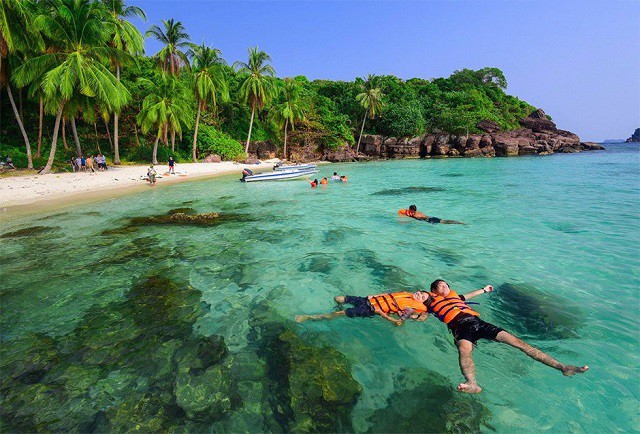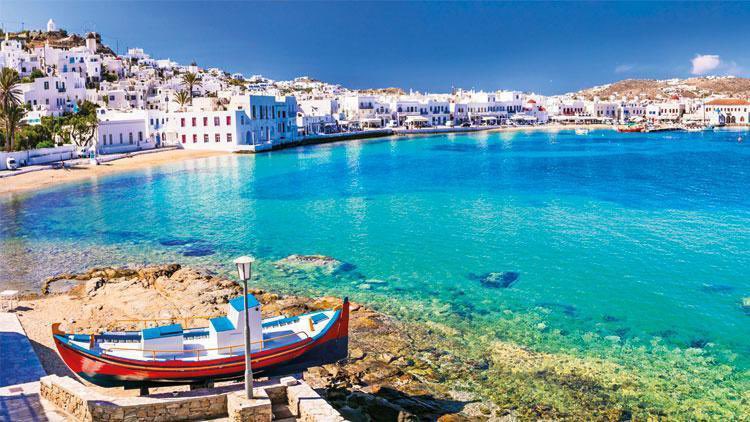
Every year, millions of travelers set out to explore the world, drawn to destinations that offer unforgettable experiences, rich histories, and vibrant cultures. The most visited countries in the world are those that have mastered the art of welcoming visitors, blending iconic landmarks with local charm and modern comforts.

From the romantic streets of Paris to the sun-soaked beaches of Thailand, these top destinations promise adventure, discovery, and memories that last a lifetime. Whether you’re seeking art, history, nature, or simply new flavors, these countries stand out for their ability to captivate and inspire. So, let’s take a closer look at the top 10 most visited countries in the world and discover what makes each one truly special.
1. France: The Epitome of Elegance and Culture

Annual Visitors: 89.4 million
Signature Experiences: Parisian landmarks, wine regions, Mediterranean coastlines
France is more than just a country-it’s a global icon of art, gastronomy, and romance. Paris, the “City of Light,” dazzles with the Eiffel Tower, the Louvre, and the Seine River. But France’s magic extends far beyond its capital. Regions like Provence, with its lavender fields and charming villages, and Bordeaux, renowned for its world-class vineyards, offer a taste of la belle vie.
.jpg)
The French Riviera, home to glamorous cities like Nice and Cannes, attracts sun-seekers and celebrities alike. France’s culinary scene is legendary, from buttery croissants to Michelin-starred feasts, and its cultural calendar is packed with events like the Cannes Film Festival and the Tour de France.
2. Spain: A Tapestry of Sun, Culture, and History

Annual Visitors: 83.7 million
Signature Experiences: Flamenco, Gaudí’s architecture, Mediterranean beaches
Spain’s vibrant energy and rich heritage make it a perennial favorite. Barcelona’s Sagrada Família and Park Güell showcase the genius of Antoni Gaudí, while Madrid’s Prado Museum and Royal Palace celebrate the nation’s artistic legacy. The beaches of Costa del Sol and the Balearic Islands draw sun worshippers, while the Camino de Santiago pilgrimage route offers spiritual seekers a unique journey.

Spain’s festivals, from the running of the bulls in Pamplona to La Tomatina in Buñol, are legendary for their passion and pageantry. And let’s not forget the tapas, paella, and sangria that make every meal a celebration.
3. United States: A Land of Endless Possibilities

Annual Visitors: 79.3 million
Signature Experiences: National parks, iconic cities, entertainment capitals
The United States is a vast playground for travelers. New York City’s skyline, Hollywood’s glamour, and Las Vegas’s neon lights are just the beginning. The country’s national parks-Yellowstone, Yosemite, and the Grand Canyon-offer some of the world’s most breathtaking natural scenery.

Theme parks like Disney World and Universal Studios are magnets for families, while cities like Chicago, San Francisco, and Miami each offer their own unique flavors. The US’s cultural diversity, innovative spirit, and world-class infrastructure make it a destination for every kind of traveler.
4. China: Where Ancient Meets Modern
.jpg)
Annual Visitors: 65.7 million
Signature Experiences: Great Wall, Forbidden City, megacities
China’s blend of ancient history and futuristic innovation is unparalleled. The Great Wall, a marvel of human engineering, winds through dramatic landscapes, while Beijing’s Forbidden City and Xi’an’s Terracotta Army reveal the grandeur of imperial China.
1.jpg)
Modern metropolises like Shanghai and Shenzhen dazzle with skyscrapers, high-speed trains, and cutting-edge technology. China’s culinary diversity, from Peking duck to Sichuan hotpot, is a feast for the senses, and its festivals, such as Chinese New Year, are spectacles of color and tradition.
5. Italy: A Feast for the Senses
1.jpg)
Annual Visitors: 64.5 million
Signature Experiences: Roman ruins, Renaissance art, Mediterranean cuisine
Italy is a living museum of art, history, and gastronomy. Rome’s Colosseum and Vatican City are must-sees, while Venice’s canals and Florence’s Uffizi Gallery enchant art lovers. The Amalfi Coast’s dramatic cliffs and Tuscany’s rolling vineyards offer postcard-perfect scenery.
2.jpg)
Italian cuisine, from Neapolitan pizza to gelato, is a global favorite, and the country’s wine regions produce some of the world’s finest vintages. Italy’s warm hospitality and timeless beauty ensure that every visit is unforgettable.
6. Turkey: Where East Meets West
.jpg)
Annual Visitors: 51.2 million
Signature Experiences: Istanbul’s skyline, Cappadocia’s landscapes, ancient ruins
Turkey’s unique position straddling Europe and Asia makes it a cultural crossroads. Istanbul, with its Hagia Sophia and Blue Mosque, is a city of contrasts, where minarets pierce the sky and bustling bazaars overflow with treasures.
1.jpg)
Cappadocia’s fairy chimneys and hot air balloon rides offer a surreal experience, while the ancient ruins of Ephesus and the travertine terraces of Pamukkale are windows into the past. Turkish cuisine, from kebabs to baklava, is a delight, and the country’s hospitality is legendary.
7. Mexico: A Celebration of Color and Tradition

Annual Visitors: 45.0 million
Signature Experiences: Mayan ruins, colonial cities, Pacific beaches
Mexico’s rich cultural heritage and natural beauty make it a top destination in the Americas. The ancient city of Chichén Itzá, the colonial charm of Oaxaca, and the vibrant energy of Mexico City each tell a different story.

The country’s beaches-Cancún, Tulum, and Puerto Vallarta-are world-renowned for their beauty and hospitality. Mexican cuisine, recognized by UNESCO, is a feast of flavors, from street tacos to mole. Festivals like Día de los Muertos and Carnival bring the country’s traditions to life in vivid color.
8. Thailand: The Land of Smiles
1.jpg)
Annual Visitors: 39.8 million
Signature Experiences: Tropical islands, Buddhist temples, bustling markets
Thailand’s warm hospitality, stunning landscapes, and rich culture make it a favorite in Southeast Asia. Bangkok’s Grand Palace and floating markets, Chiang Mai’s temples, and the idyllic islands of Phuket and Koh Samui offer endless variety.
.jpg)
Thai cuisine, from pad Thai to green curry, is beloved worldwide, and the country’s affordability and friendly locals ensure a welcoming experience for every traveler.
9. Germany: Heart of Europe’s History and Innovation

Annual Visitors: 39.6 million
Signature Experiences: Castles, Oktoberfest, scenic landscapes
Germany’s blend of medieval charm and modern efficiency is irresistible. Bavaria’s fairy-tale castles, the Rhine Valley’s vineyards, and Berlin’s vibrant arts scene each offer a unique perspective.

Oktoberfest in Munich is the world’s largest beer festival, drawing millions to celebrate Bavarian culture. Germany’s efficient transport, historic sites, and commitment to sustainability make it a model for European travel.
10. United Kingdom: A Kingdom of Heritage and Diversity
1%20(1).png)
Annual Visitors: 39.4 million
Signature Experiences: London landmarks, Scottish castles, literary history
The United Kingdom’s rich history and cultural diversity are on full display. London’s Big Ben, Buckingham Palace, and the British Museum are global icons, while Edinburgh’s castle and the Scottish Highlands offer dramatic scenery.
.jpg)
The UK’s literary heritage, from Shakespeare to Harry Potter, and its royal traditions continue to captivate visitors from around the world.
Why These Countries Lead the World in Tourism
These top 10 countries have mastered the art of blending tradition with innovation, offering something for every traveler. Their world-class infrastructure, rich cultural heritage, and commitment to hospitality ensure that visitors leave with unforgettable memories and a desire to return.

Whether you’re seeking adventure, relaxation, or cultural enrichment, these destinations are the gold standard of global tourism-each a world unto itself, waiting to be explored.

.jpg)
.jpg)
.jpg)
.jpg)
.jpg)



.jpg)
.jpg)



.jpg)
.jpg)
.jpg)



.jpg)
.jpg)
.jpg)







.jpg)
.jpg)






.jpg)

.jpg)








.jpg)


.jpg)






.jpg)
.jpg)